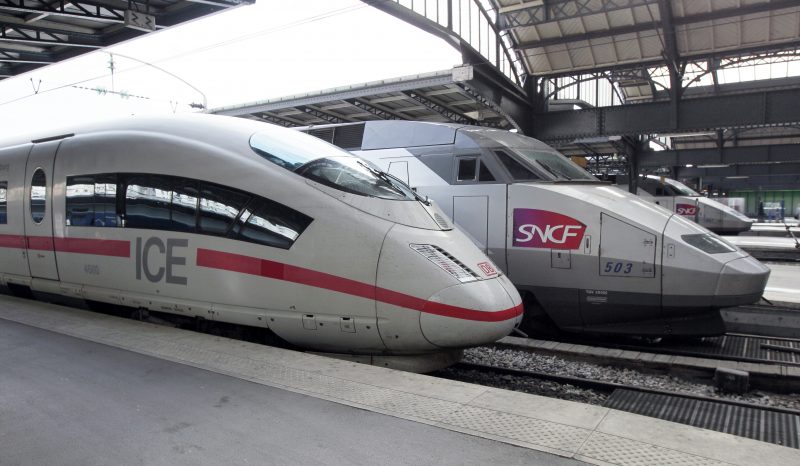EU’s rail merger veto ignites spat over competition rules
The proposed Siemens-Altom merger had been hailed as the birth of a much-needed European industrial champion, an Airbus for the railways to face down a formidable Chinese rival (JACQUES DEMARTHON)
Paris (AFP) – The European Union’s veto of an Alstom-Siemens rail merger has revived debate over competition regulations that some say are obsolete in the face of growing rivalry from Chinese giants.
The proposed tie-up, announced in 2017, had been billed as the birth of an all-too-rare European industrial champion — a “Railbus” to match Airbus, Europe’s aviation giant that competes toe-to-toe with US-rival Boeing.
But, after months of investigation and a rejected offer of concessions from the companies, the European Commission on Wednesday blocked the merger between the French and German firms.
French Prime Minister Edouard Philippe quickly slammed the EU’s “bad decision”, saying its take on competition is “wild” and “a very outdated idea of the law”.
France’s Economy Minister Bruno Le Maire had already warned that an EU veto only “served China’s economic interests”.
German Economy Minister Peter Altmaier meanwhile said Berlin and Paris would jointly propose changes to EU rules that have riled both countries.
– Paris, Berlin plan changes-
The merger was aimed at creating a European rail group able to compete worldwide with the industry leader, the China Railroad Rolling Stock Corporation (CRRC).
Altmaier has called for industrial policies that would help European companies compete on an equal footing with international rivals.
“Aren’t there areas such as aviation, railways and banks where we should take the global market as a reference rather than the European one?” he asked on Tuesday.
EU competition commissioner Margrethe Vestager, who announced the veto, does not contest the need for so-called European champions, but says her priority is to respect established regulations.
“To be competitive abroad requires competition at home,” Vestager argued in a note to fellow EU commissioners who discussed the issue earlier this week.
Le Maire disagreed, warning that “if we fail to see the world as it is, we risk finding ourselves at a loss in a few years”.
He and Altmaier plan to present propositions in the coming weeks “to revamp competition rules and allow us a much more ambitious industrial policy with respect to our US and Chinese competitors,” Le Maire said.
The French rail group needed to shore up its position and Paris would consider other “merger options” because Alstom “must consolidate” its situation, Le Maire said.
Meanwhile, beyond using global markets as a reference, the French minister suggested that European heads of state have a say so that EU rulings “are not just technical decisions”.
– ‘Not a world of teddy bears’ –
Industrialists took a similar stance.
“In this world, which is not one of teddy bears, the balance of power exists,” Michelin and Renault boss Jean-Dominique Senard told a finance forum Tuesday.
“It would be healthy if the current dialogue was not purely Chinese-American,” he said.
“Europe must develop a political force that will naturally be an economic force” as well, Senard added.
Siemens chief executive Joe Kaeser argued that the EU “urgently needs structural reform.”
“Protecting customer interests locally must not mean that Europe cannot be on a level playing field with leading nations like China, the United States and others,” he added.
Germany’s industrial federation BDE last month called for Europe to stand up to Chinese pressure and adapt competition law.
In November 2018, EU members agreed on a framework to control foreign investment in strategic sectors, much of which is Chinese.
But the competition issue divides Europeans, with some calling for strict application of accepted rules while others would like to adapt them to protect that which is “made in Europe”.
The European Commission is inclined to support competition regulations such as those used to justify the Alstom-Siemens veto, with one high-level civil servant noting that “not doing so might come back to haunt Europeans.”
EU control over the consequences of US mergers in Europe were a case in point, the civil servant noted.
Since 1989, the EU’s executive branch has the power of veto against proposed mergers, but it has rarely used it.
In more than 30 years, more than 6,000 mergers have been approved and less than 30 blocked.
Disclaimer: This story is published from a syndicated feed. Siliconeer does not assume any liability for the above story. Validity of the above story is for 7 Days from original date of publishing. Content copyright AFP.


